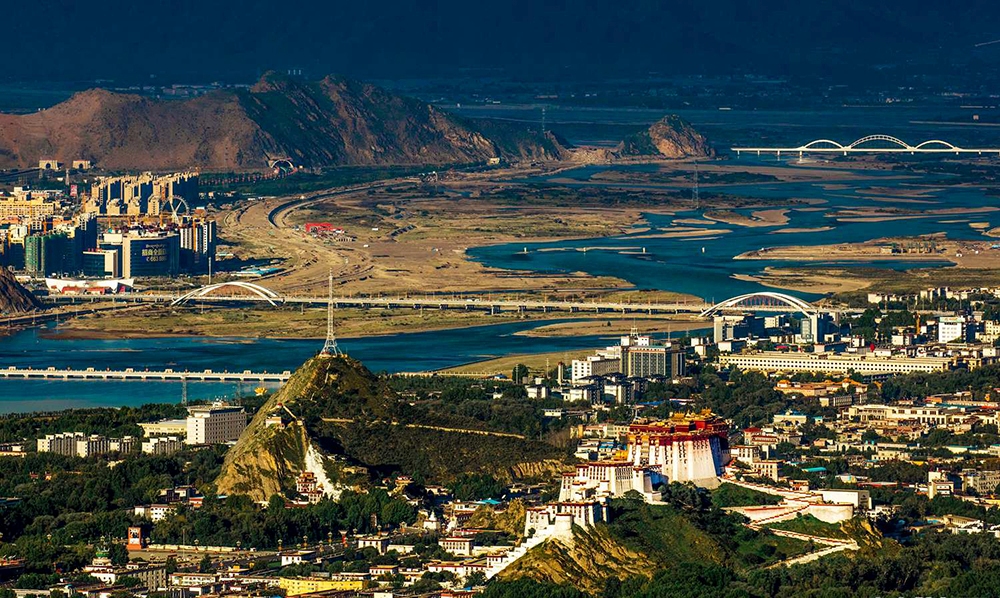Academician Lang Jinghe: The Medical Conditions on the Qinghai-Xizang Plateau Have Improved Rapidly over the Past 50 Years
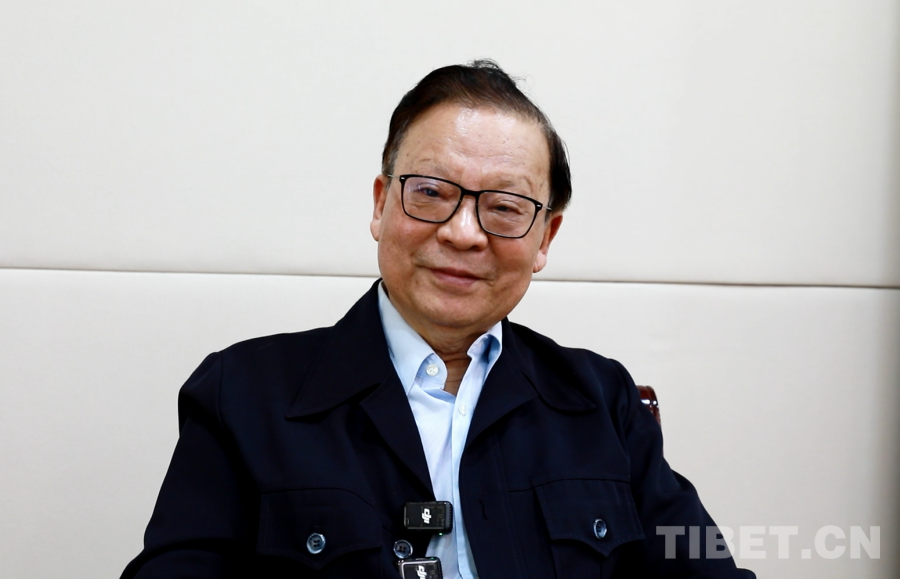
Lang Jinghe, an academician of the Chinese Academy of Engineering and the vice chairman of the Expert Panel of the Organizing Committee of the charity program “One Heart, the China Heart.”
“Our Party and government are deeply concerned about and place significant emphasis on the well-being of all ethnic groups in border areas. The initiative of “One Heart, the China Heart" charity program is a public welfare endeavor aimed at addressing these concerns. Medical teams are organized to venture into regions inhabited by ethnic minorities, particularly those facing challenging sanitary and other conditions. These teams deliver essential medical supplies and warmth to local communities while also providing training for local healthcare personnel, effectively exemplifying our commitment.” Lang Jinghe said.
On May 15, the 2025 large-scale public welfare medical program “One Heart, the China Heart” was launched in Aba Tibetan and Qiang Autonomous Prefecture and Garze Tibetan Autonomous Prefecture in Sichuan Province, and Gannan Tibetan Autonomous Prefecture in Gansu Province. More than 800 medical volunteers from Beijing, traveled to the plateau to provide a series of medical and health services to residents, including free clinical treatments, health screenings, and educational lectures.
Lang believes that medical workers can undergo a spiritual transformation and receive valuable education by visiting border regions on the plateau and underdeveloped areas of China. By engaging in face-to-face communication with local communities and providing essential medical services, they can enrich their experiences. “I have traveled to Xizang Autonomous Region, Xinjiang Uyghur Autonomous Region, Aba Tibetan and Qiang Autonomous Prefecture and Garze Tibetan Autonomous Prefecture in Sichuan Province. The Tibetan, Hui, Uyghur, and various other ethnic groups express deep affection for our Party and government, which is truly commendable.”
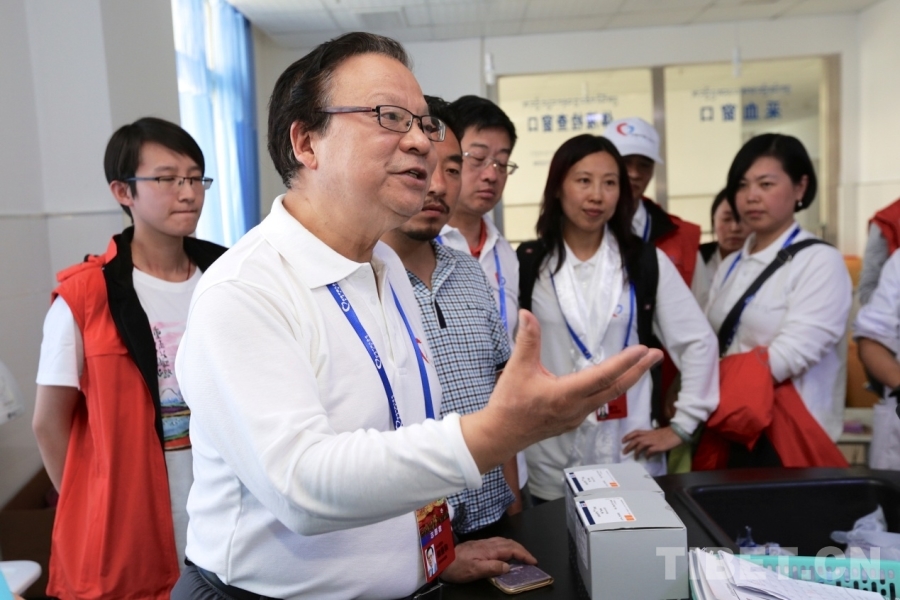
Academician Lang Jinghe (the first one from the left in the front row) is guiding HPV screening in Garze Tibetan Autonomous Prefecture, Sichuan Province, in the 2016 public welfare medical program.
Since the 1970s, Lang Jinghe has made numerous trips to the Qinghai-Xizang Plateau to provide free clinical treatment, conduct surveys, and engage in various other initiatives. Over a decade ago, driven by a commitment to improving the health and well-being of women on the plateau, he became a pivotal advocate for establishing accessible “mothers’ bathrooms” in pastoral areas. The initiative was undertaken in response to the area’s urgent needs and pragmatic conditions. With the financial backing of Buchang Pharma Group, these facilities were successfully implemented in the pastoral areas of the Qinghai-Xizang plateau.
“This is a commendable initiative,” Lang said. Due to the environmental constraints of the grassland, local women are only able to take showers a few times each year. The establishment of “mothers’ bathrooms,” equipped with bath heaters, electric water heaters, and other facilities, addresses the challenge of bathing for women in this plateau region and transforms public perceptions regarding hygiene while reducing the incidence of gynecological diseases in the area. “The shift in health habits brought about by these small mothers’ bathrooms may appear to be a minor step; however, it represents a significant advancement towards improved health and civilization.”
“I often emphasize that our role extends beyond merely providing medical treatment and medication; we are also builders of health.” As a leading expert in obstetrics and gynecology in China, Lang has witnessed and actively participated in the significant advancements in medical and health conditions on the Qinghai-Xizang Plateau over the past 50 years.
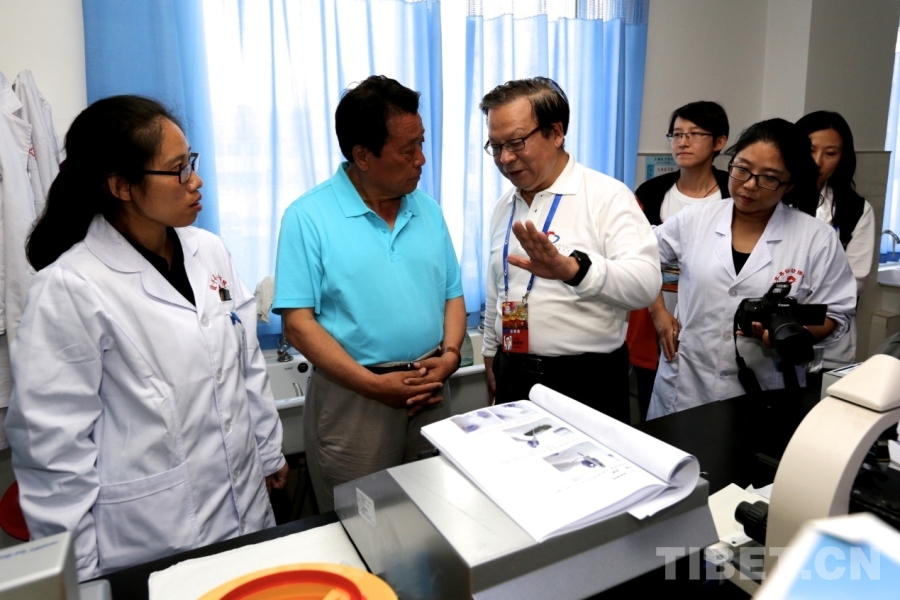
Academician Lang Jinghe (the third one from the left in the front row) is guiding local medical workers in Dawu County, Garze Tibetan Autonomous Prefecture, Sichuan Province, in the 2016 public welfare medical program.
When Lang Jinghe came to the plateau for work in the 1970s, the new method of labor and delivery, including the concepts of “sterile concept to prevent obstetrics infection” and “protecting mothers,” had not been popularized and required vigorous promotion. “Great progress has been made compared to the past, with civilized and scientific medical practices becoming habitual. Furthermore, thanks to the attention from the Party and our state, medical equipment has improved considerably; a wide variety of devices are now available.” This made Lang satisfied.
Lang Jinghe candidly stated that the software and hardware components of medical services on the Qinghai-Xizang Plateau have experienced significant improvements over the past 50 years. However, the utilization rate of advanced medical and health equipment remains insufficient. “It is essential to understand how to effectively use state-supported equipment and to utilize it proficiently. Mastering new technologies is crucial. Therefore, we should assist local healthcare personnel in these regions. We offer various training courses for local medical staff, allowing them to engage in lessons and communicate thoroughly.”
Stories
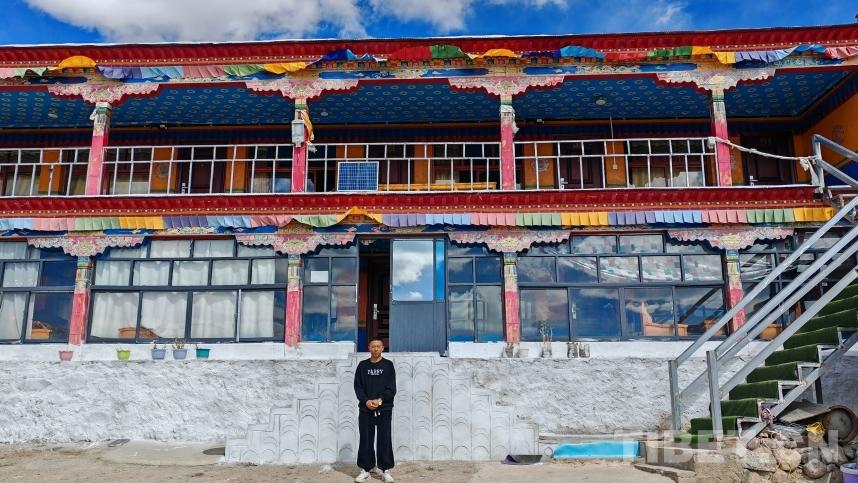
Path to Better Life for People in Ombu Community, Nagqu
Yomzhong, at the age of 26, runs his own homestay beside Tangra Yumco Lake.
Editor’s Choice
- Six Scholars Talked about Good-neighborly Friendship and Community of Shared Future
- The origins of the Zangnan area disputes
- China Brooks No External Interference in Zangnan Area
- It is groundless accusation smearing the boarding school in Xizang
- Xizang fully guarantees freedom of religious belief: white paper

